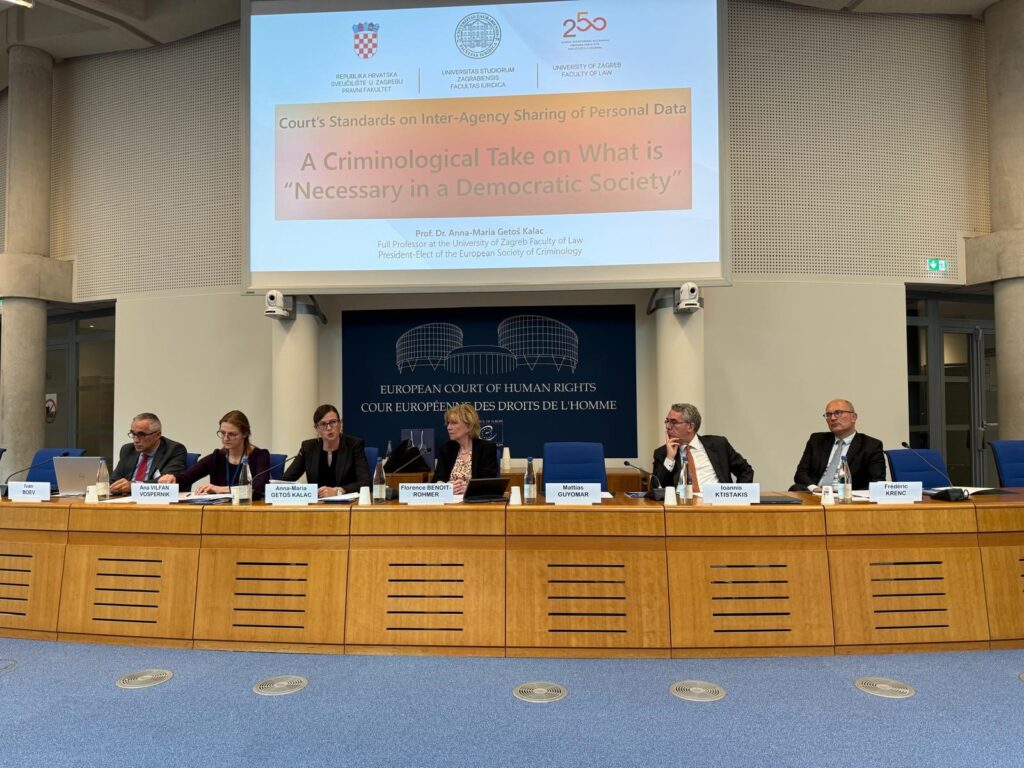Prof. Dr. Anna-Maria Getoš Kalac had the pleasure to participate in the conference honouring ECtHR President Marko Bosnjak, held at the European Court of Human Rights (ECtHR) in Strasbourg on 26th May 2025, as invited distinguished speaker. The magnificent event bought together ECtHR judges, academics as well as experts to jointly discuss the ECtHR’s jurisprudence at the intersection of human rights law and criminal law.
Organised to mark the conclusion of ECtHR President Marko Bošnjak’s mandate as judge elected in respect of Slovenia and President of the ECtHR, the event brought together around 80 participants, including judges, ambassadors, legal professionals, members of the Court’s Registry, and staff of the Council of Europe. The discussions focused on:
– Procedural guarantees in criminal law through the lens of the Court’s case law (Speaker: John A.E. Vervaele, Emeritus Professor, University of Utrecht, Honorary President of the International Association of Penal Law; Moderator: Davor Derenčinović, Judge elected in respect of Croatia)
– Contemporary issues of detention in the recent jurisprudence of the Court (Speaker: Hans-Jörg Albrecht, Professor, Director emeritus, Max Planck Institute for the Study of Crime, Security and Law, Freiburg im Breisgau; Moderator: Úna Ní Raifeartaigh, Judge elected in respect of Ireland)
– Court’s standards on inter-agency sharing of personal data (Speaker: Anna-Maria Getoš Kalac, Professor, University of Zagreb, President-elect of the European Society of Criminology; Moderator: Florence Benoît-Rohmer, Professor emeritus, University of Strasbourg)
– The Court and the Academia: synergies and intersections (Speaker: Ivan Boev, Associate Professor, University of Strasbourg; Moderator: Ana Vilfan Vospernik, Registry Lawyer and Case-Law Coordinator for Minority Rights)
Prof. Dr. Getoš Kalac’s provided A Criminological Take on What is “Necessary in A Democratic Society”, by exploring the prospective benefits of evidence-based approaches within the existing framework in which the ECtHR preserves data protection standards. More specifically, she argued that governments should be required to demonstrate that law enforcement and intelligence measures targeting personal data, particularly their inter-agency transmission, are not only in principle, but in fact empirically “necessary in a democratic society”. Even when such measures pursue a legitimate aim, their application, she argued, should not be permissible if there is empirical evidence that the means used are excessive, arbitrary, unfair or abusive. Thereby she also highlighted the growing need for criminological research as well as its stronger impact on human rights and criminal law.

